

Artist plays role in Colonial Reckoning
The Golden Coach Exhibition
Amsterdam Museum
King Willem-Alexander of the Netherlands, being shown the installation of Artist Sithabile Mlotshwa by Amsterdam Museum’s Artistic Director Margriet Schavemaker, during the official opening of the historical exhibition, the “Golden Coach” in June 2021.
Sithabile Mlotshwa’s installation “A Truly Dutch Creation – the Citizen as Investor and Stakeholder” depicts King Willem-Alexander, Queen Maxima and the royal family at the core of the making of Empire and the colonial story.
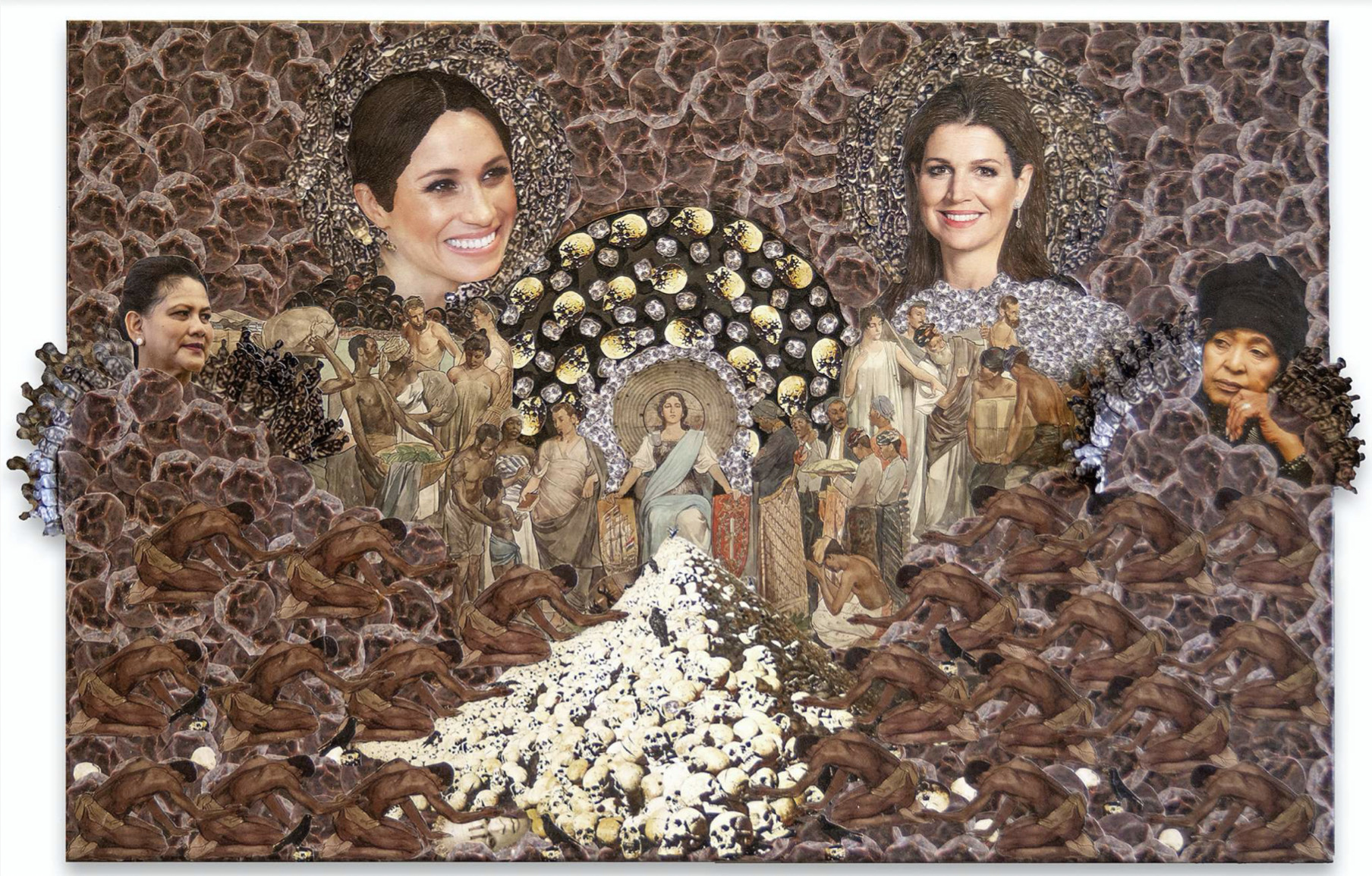
The Netherlands has been reckoning with its history as a 17th-century colonial superpower, where Dutch merchants made vast fortunes from enslaved peoples. The controversial royal family’s Golden Carriage, bears a painting that critics say glorifies the Netherlands’ colonial past, including its role in the global slave trade. The imagery on the Golden Carriage especially the panel called Tribute to the Colonies, shows half-naked enslaved Africans and Indonesian people offering their riches to the royal family.
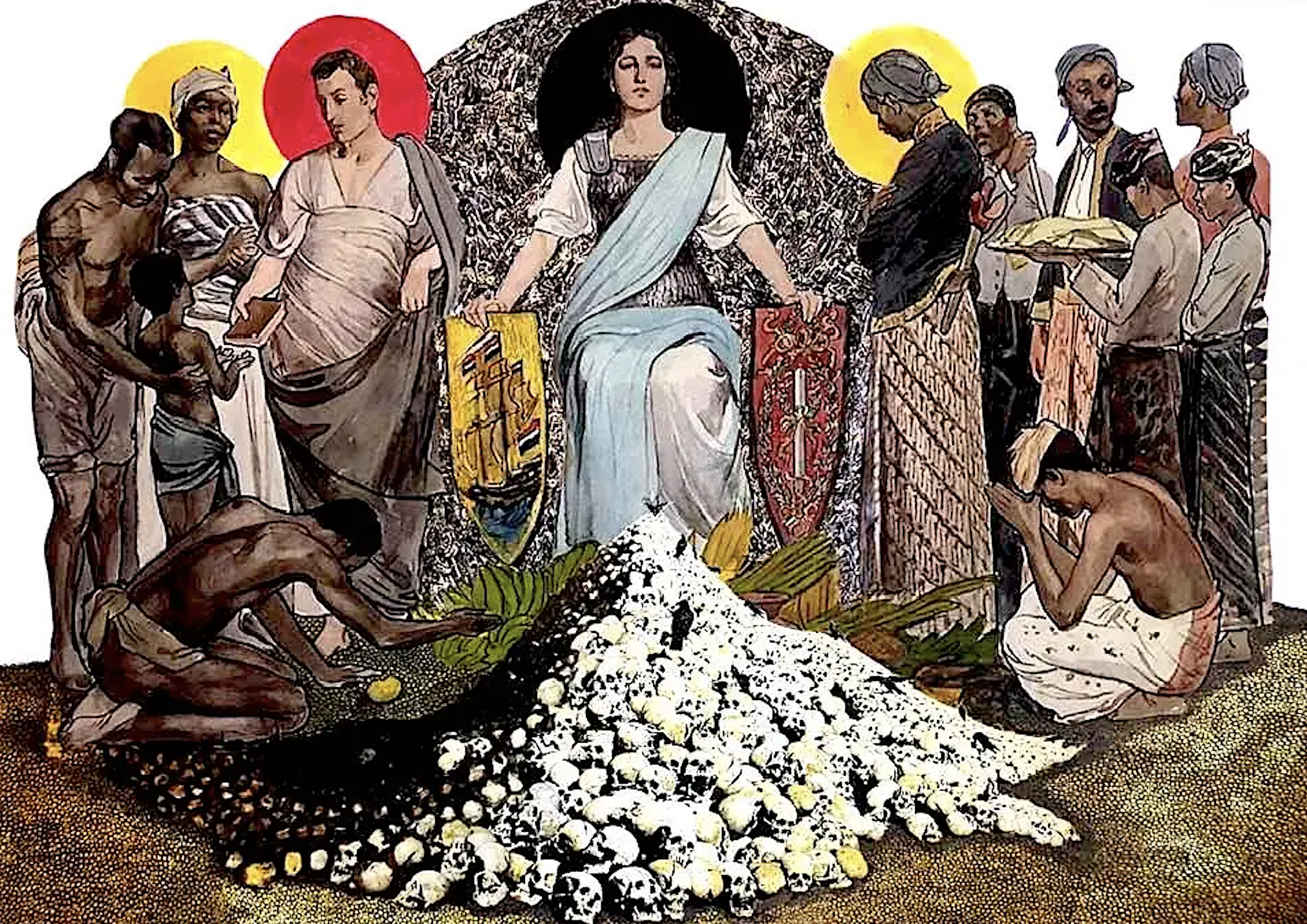
Many people were enslaved under Dutch colonial rule in the Indian Ocean, the Indonesian archipelago, South Africa, Brazil, Guyana and territories in the Caribbean.
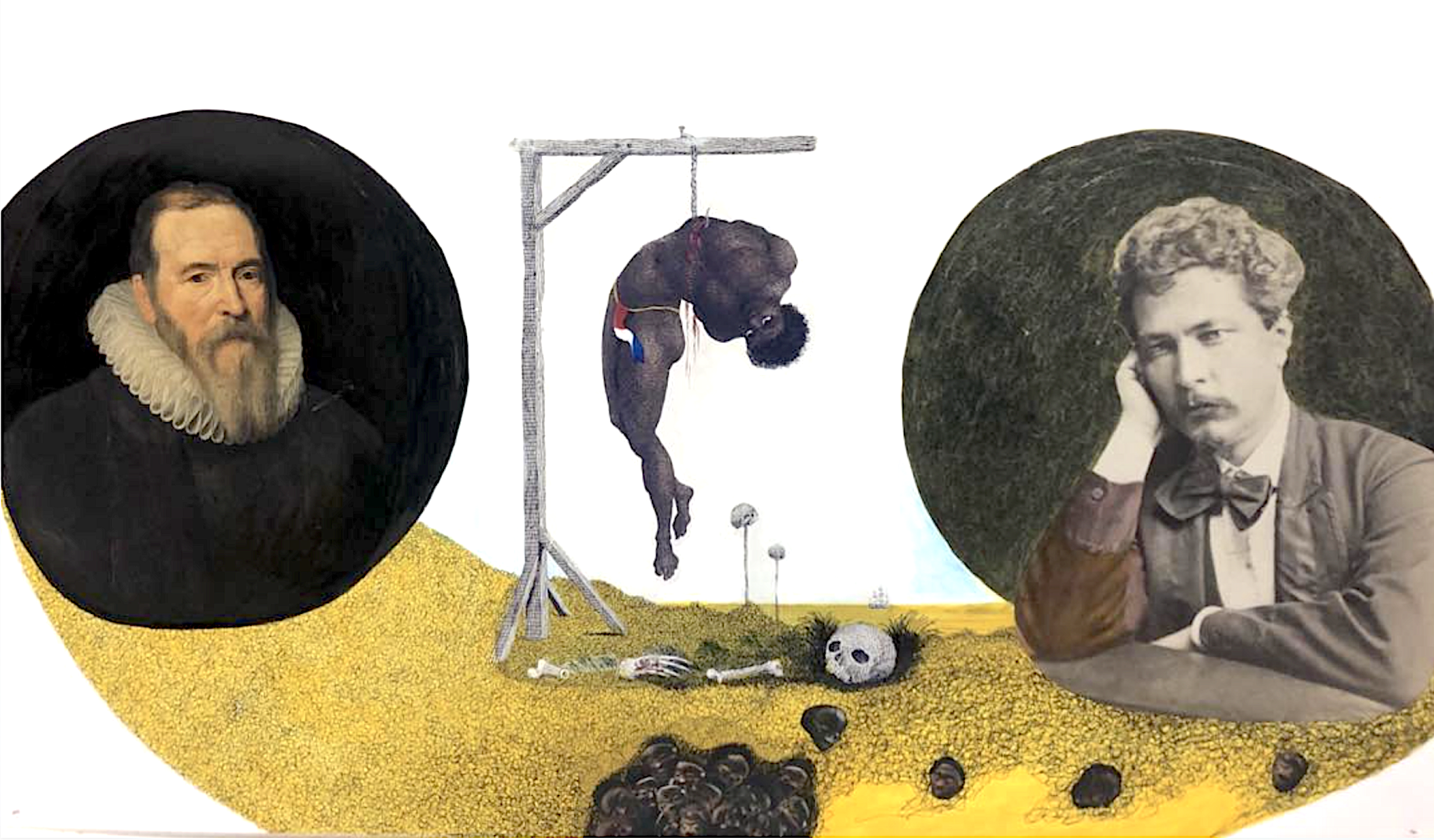
“Our history has many things to be proud of, but it also offers lessons in recognising mistakes and avoiding them in the future,” the king said in his video message. “We cannot rewrite the past. But we can try to come to terms with it together.”

A few months later after the above statement, King Willem-Alexander commissioned independent research into the role of the House of Orange-Nassau in Dutch colonial history. The research will take three years to complete and will cover the period from the late 16th century to the “post”colonial present. The research will be carried out at Leiden University.
The reason Sithabile says she made this installation, was with the hope that the royals would have a role in further opening the curtain that still shrouds the history of colonialism and slavery in the Netherlands.
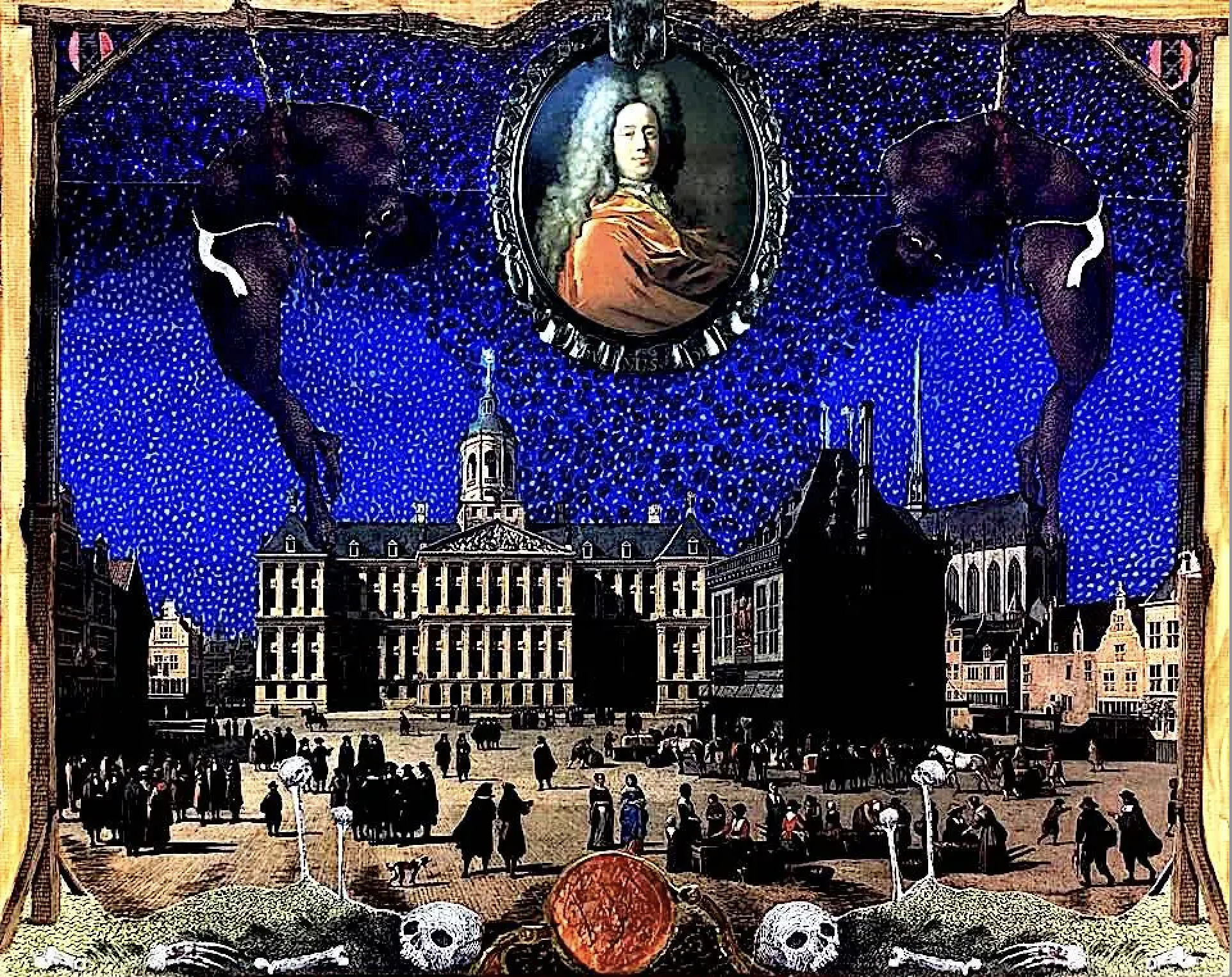
As only in this way, can awareness grow in (Dutch)
society regarding the many threads which connect the past and present, both with each other and with places all over the world. The recent decision made by King Willem-Alexander of the Netherlands to commission independent research into the role of the Royal family “Orange-Nassau family” in colonial history, makes Sithabile Mlotshwa feel very proud. As an artist who made an artwork with the aim for the Royal family to take this very step, she adds, “it makes me feel that I have played a very important role in this historical moment”.
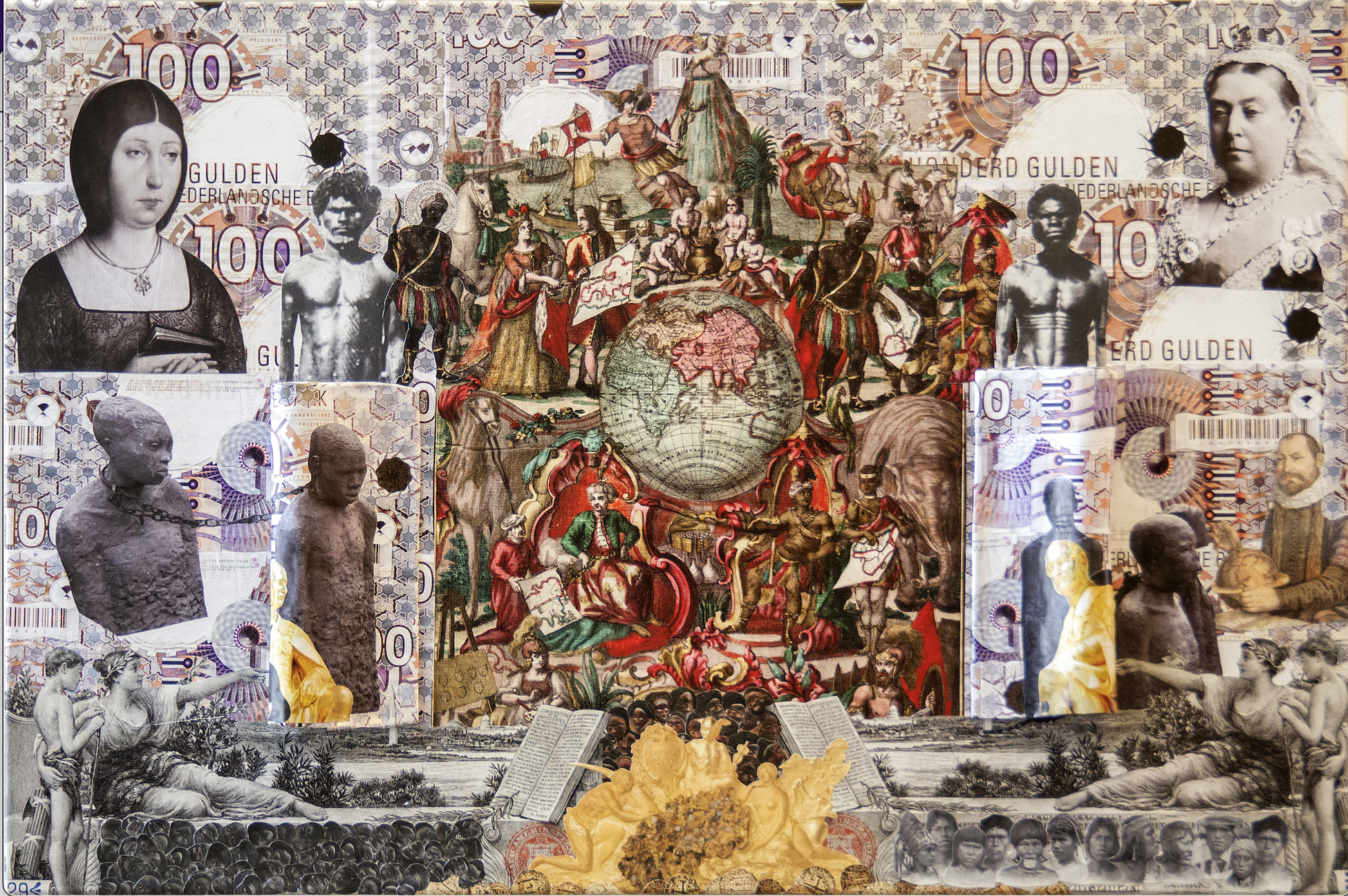
“In-depth knowledge of the past is essential to be able to understand historical facts and developments and to face their impact on people and communities as clearly and honestly as possible,” said King Willem-Alexander about the study into his family history. “I think it is important that this knowledge also becomes available with regard to the role of the House of Oranje-Nassau in colonial history. This should be done on the basis of thorough, critical and independent research, which I have commissioned.” https://www.universiteitleiden.nl/en/news/2022/12/independent-research-into-house-of-orange-nassau-and-dutch-colonial-history


Following the Golden Coach “Gouden Koets” Exhibition which the King officially opened on the 17th of June 2021 lasting till the end of February 2022, a month prior to the end of the exhibition, King Willem-Alexander made a public announcement stating that he would not use the Golden Carriage for the time being and that this Royal Carriage, depicting the celebration of Colonialism and Conquest, would be used again when the Netherlands is ready for it, the King said.
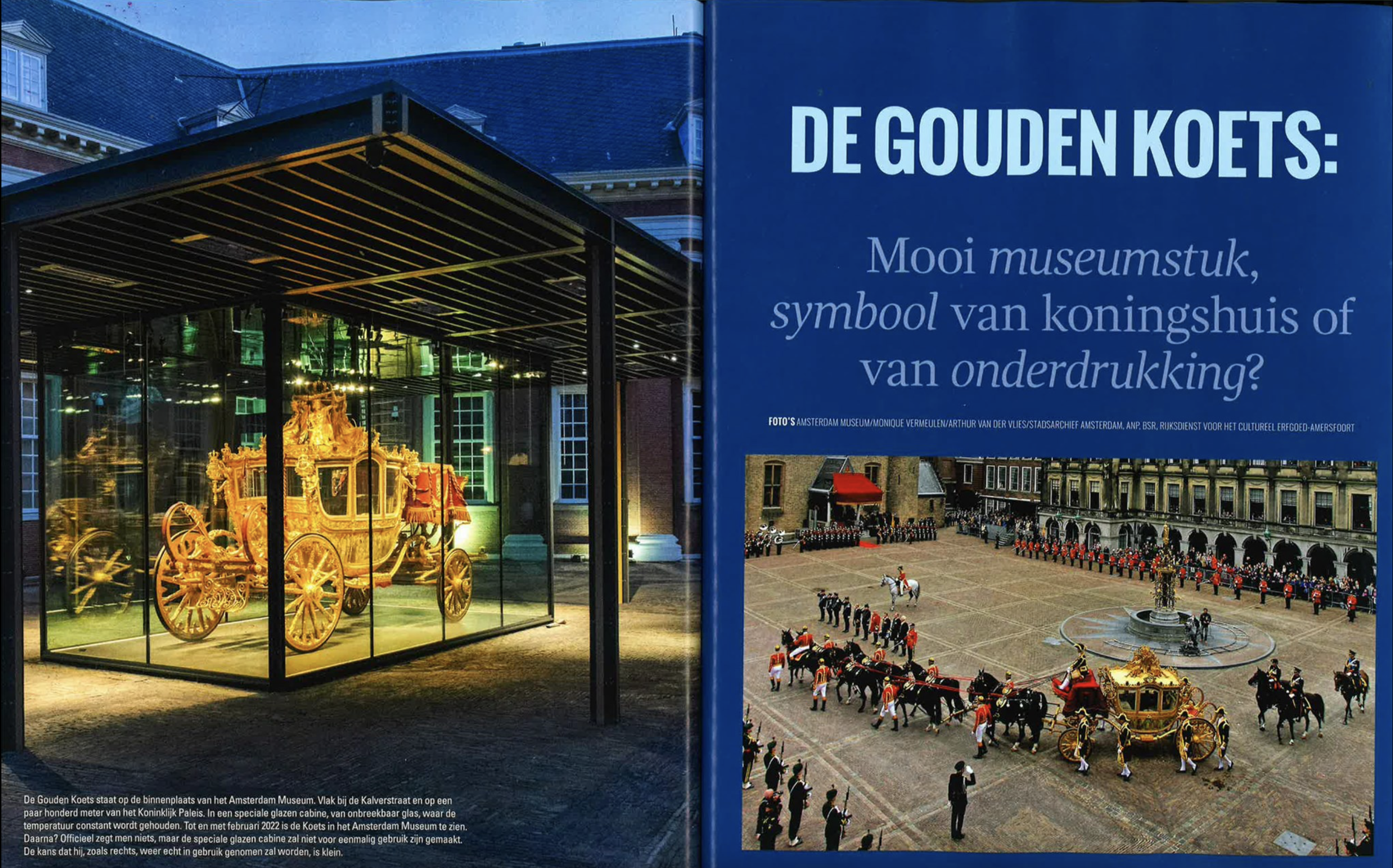
The carriage and its symbolism have already sparked outcry, particularly within the Dutch migrant groups with ties to the former colonies, for many years. This has intensified in the past decade, including calls by Jeffry Pondaag of the Dutch-based Committee of Dutch Debts of Honor KUKB to ban the coach altogether. In the past two years, this discussion was spurred further by the global Black Lives Matter movements.
Many people were enslaved under Dutch colonial rule in the Indian Ocean, the Indonesian archipelago, South Africa, Brazil, Guyana and territories in the Caribbean.
Many people were enslaved under Dutch colonial rule in the Indian Ocean, the Indonesian archipelago, South Africa, Brazil, Guyana and territories in the Caribbean.
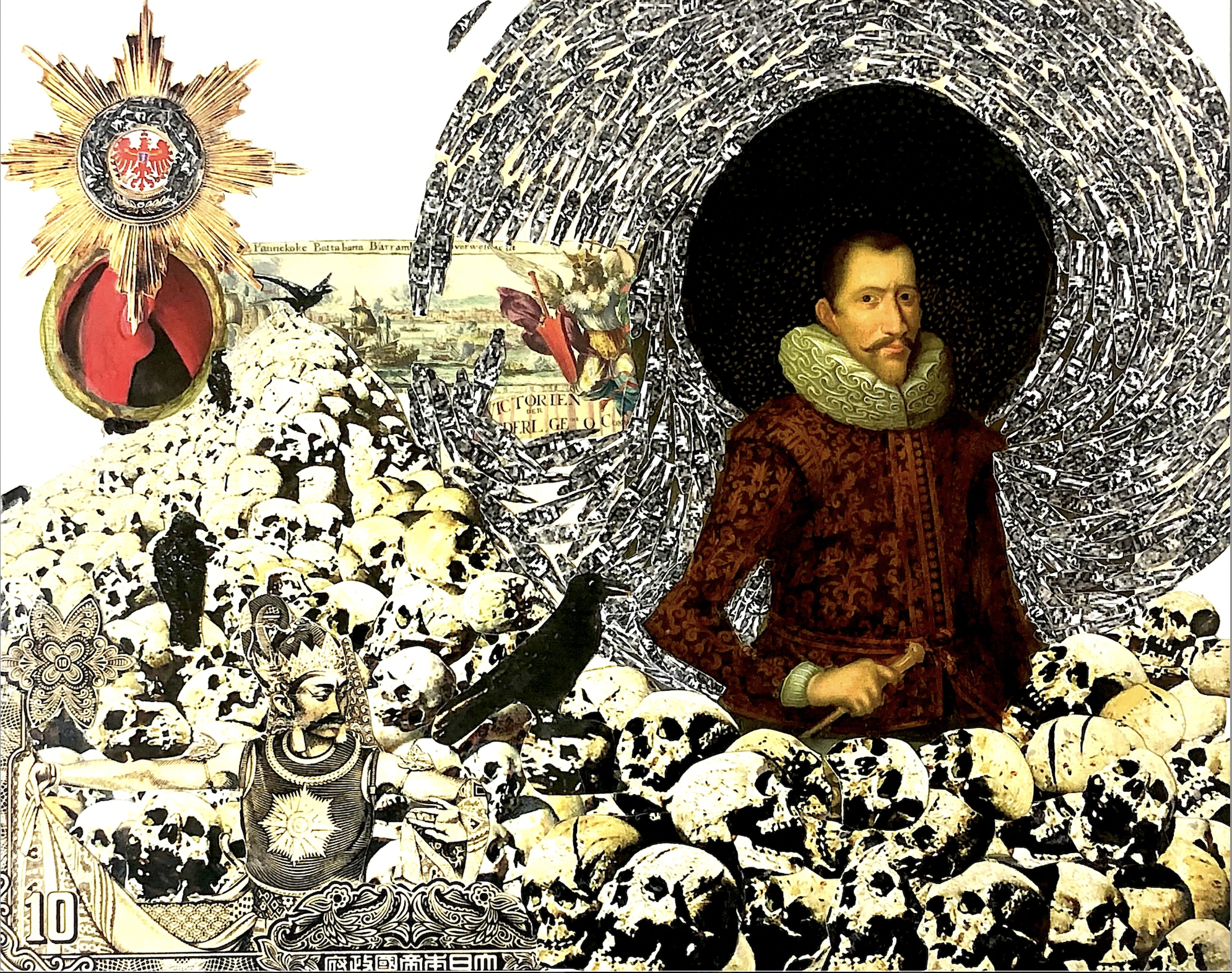
“Our history has many things to be proud of, but it also offers lessons in recognising mistakes and avoiding them in the future,” the king said in his video message. “We cannot rewrite the past. But we can try to come to terms with it together. That applies to the colonial past as well.” The king said simply banning objects and symbols from history or judging them by today’s norms, is not the solution. “We need a concerted effort that goes deeper and lasts longer, an effort that unites us rather than divides us,” he said.
“All citizens of this country should be able to feel that they are equal and have fair opportunities. Everyone should be able to feel part of what has been built up in our country and be proud of it,” he said. “As long as there are people living in the Netherlands who feel the pain of discrimination on a daily basis, the past will still cast its shadow over our time, and it will not yet be over.” the king said. “The golden coach will only be able to drive again when the Netherlands is ready for it, and that is not yet the case.”
“All citizens of this country should be able to feel that they are equal and have fair opportunities. Everyone should be able to feel part of what has been built up in our country and be proud of it,” he said. “As long as there are people living in the Netherlands who feel the pain of discrimination on a daily basis, the past will still cast its shadow over our time, and it will not yet be over.” the king said. “The golden coach will only be able to drive again when the Netherlands is ready for it, and that is not yet the case.”

The recent decision made by King Willem-Alexander of the Netherlands to commission independent research into the role of the Royal family “Orange-Nassau family” in colonial history, makes Sithabile Mlotshwa feel very proud. As an artist who made an artwork with the aim for the Royal family to take this very step, she adds, “it makes me feel that I have played a very important role in this historical moment”.

Sithabile overjoyed with this public announcement responded by saying, “ I have no words to express the joy I feel. For the first time, I feel like a load of weight has been lifted off my shoulders. I began working on this major research project in 2018, but the Dutch public, media and institutional response to my work was a collective silence. This was followed by a lot of critic, where many people did not understand why I was focusing on a history that they felt had nothing to do with me. I lost a lot of white friends who suddenly did not understand me and why I was doing this project. Many of them felt that I had become very angry, that I had changed and had become a racist. I can’t express how hard it is to be socially and institutionally negated because the subject matter you address is unwelcome and not palatable for the public.
![]()
After four years of feeling like I was talking to the wind, due to the Dutch society’s “Collective Historical Amnesia”, the fact that this is happening, the fact that Dutch banks, have now apologised for slavery, the fact that the Mayor of Amsterdam also apologised for Slavery, https://www.bbc.com/news/world-europe-57680209 the fact that the King has commissioned an investigation into the role of his family in colonial history and the fact that my work archived its aim, which was for the royal family to take this position, confirms the relevance and importance of my research. https://sithabileinfryslan.com/ And this fact, makes me very, very proud”.
She ended by acknowledging Curator Annemarie de Wildt, who invited her to take part in this historical exhibition.

After four years of feeling like I was talking to the wind, due to the Dutch society’s “Collective Historical Amnesia”, the fact that this is happening, the fact that Dutch banks, have now apologised for slavery, the fact that the Mayor of Amsterdam also apologised for Slavery, https://www.bbc.com/news/world-europe-57680209 the fact that the King has commissioned an investigation into the role of his family in colonial history and the fact that my work archived its aim, which was for the royal family to take this position, confirms the relevance and importance of my research. https://sithabileinfryslan.com/ And this fact, makes me very, very proud”.
She ended by acknowledging Curator Annemarie de Wildt, who invited her to take part in this historical exhibition.